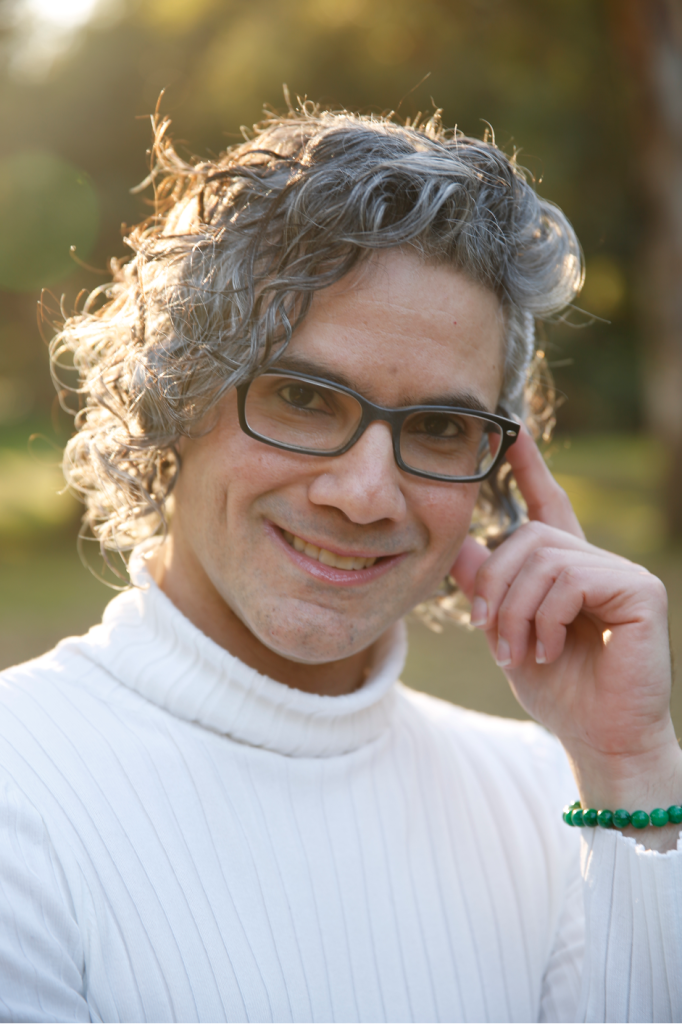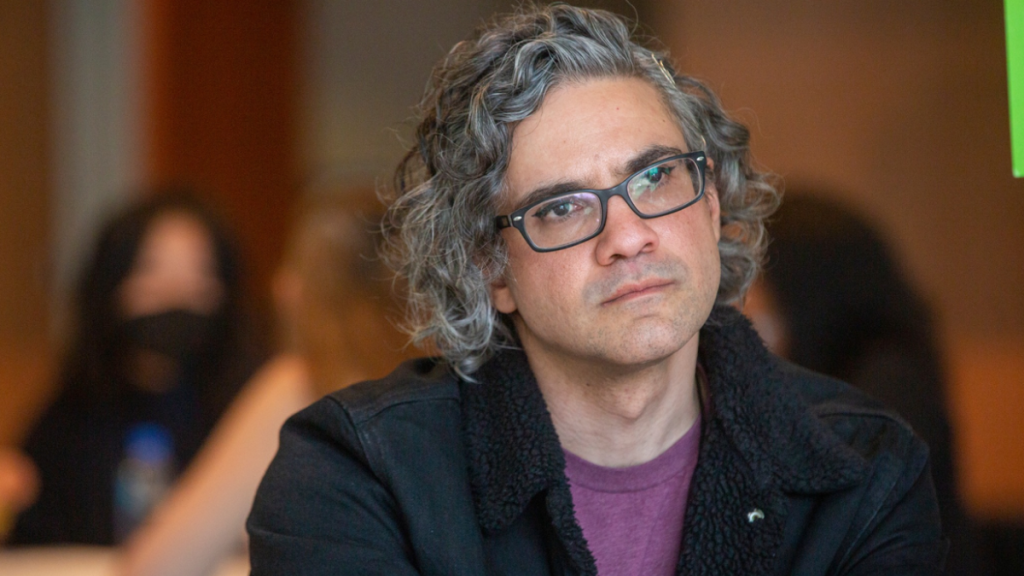In a world of typecast stories and repetitive themes, Vee Saieh’s screenplays emerge as a breath of fresh, diverse air, introducing audiences to immersive stories while maintaining a palpable emotional core. From the eerie backdrops of the supernatural to deeply introspective personal tales, Saieh’s narrative agility is as enviable as it is commendable.
The film and entertainment industry today is both a reflection of society’s tastes and an influencer of cultural perspectives. With the proliferation of streaming platforms and global content dissemination, audiences have become more discerning, seeking out stories that not only entertain but also resonate. This transformation in consumption habits has also opened doors for stories that are unique, reflective, and nuanced. Narratives that touch the heart, make one ponder, or transport to a different world are more relevant today than ever before.
Enter Vee Saieh. Her journey in the cinematic world is not just marked by her outstanding ability to craft compelling narratives but also by her gift of versatility. Across her prolific career, Vee’s screenplays have consistently stood out, not only for their individual merits but also for their collective range. Her projects have consistently been in the Top 1% on Coverfly—a massively popular script hosting site—and have won or been finalists for some of the most competitive contests out there such as WeScreenplay, Final Draft’s Big Break, and the PAGE Awards. And Vee has done it with vastly different stories that span a spectrum of genres and themes. These accolades and more prove that her expertise and success in her field are undeniable.
In our exclusive interview with Vee, we explore how she constructs such impactful stories that are as diverse as they are deep. A quick glance at her works like “Kingdom Come,” “SOUL SEARCHING,” and “Hellbound” showcases her proficiency across genres. While “Kingdom Come” weaves the intricate threads of faith and grief amidst a supernatural backdrop, “SOUL SEARCHING” masterfully melds elements of crime drama with profound introspection. “Hellbound” takes readers on an intense journey to the underworld, a reflection of one’s soul and past regrets. Through these works, it’s evident that Vee isn’t just a storyteller; she’s a chameleon, adapting and shining in varied narrative environments.
Saieh’s approach to blending genres is rooted deeply in character development. “You can write a story in any genre—or any blend of genres—as long as your characters, their relationships, and their struggles ring true,” she reflects. This focus on character-centric narratives, irrespective of the genre, is what gives her stories their unmistakable depth. Each character, with their flaws and desires, mirrors facets of human experiences, making them universally relatable. Vee’s inclination toward morally gray characters, coupled with her ability to infuse them with universal wants, makes her tales both captivating and resonant.
Further, the worlds Vee crafts in her narratives are not mere backdrops; they are living, breathing entities. The intricate world-building, especially in stories with supernatural or fantastical elements, is not just about creating an environment but ensuring it complements the story and its characters.
Drawing from varied inspirations, from eerie superstition to the inherent magic she sees in everyday life, Vee Saieh crafts stories that linger in one’s mind. Her narratives are not just tales; they are experiences—ones that evoke emotions, provoke thoughts, and transport readers into worlds beautifully unfamiliar yet intimately known.
We’re truly honored to speak with you, Vee. From the supernatural elements in “Kingdom Come” to the introspective themes of “SOUL SEARCHING,” you seem to have a knack for blending genres. How do you approach blending different narrative elements to create a unique story?
I think it all goes back to characters, really. You can write a story in any genre –or any blend of genres – as long as your characters, their relationships, and their struggles ring true. In a way, all my stories have a strong dramatic throughline, regardless if they’re fantasy, horror, thriller or, well, drama. Even the supernatural elements in “Kingdom Come” are simply a vehicle for a story about faith and grief. And SOUL SEARCHING, in spite of being a supernatural crime drama, is really about the struggle to become a better person.
Genres, in and of themselves, are just the shape a story takes. As long as you have strong foundational elements and a compelling story, you can have fun with how you dress it.
Your stories highlight intense personal journeys. How do you go about developing such rich, multidimensional characters, and how much of yourself do you see in them?
I’m naturally drawn to morally gray characters, whether squeaky clean and treading a slippery slope or wracked with guilt and trying to become a better person. And, in and of itself, giving a character faults—greed, dishonesty, irritability—already makes them more human and relatable. Beyond that, I try to give them simple but universal wants that the audience can identify with. So, regardless of genre, the core of the characters remains grounded in the human experience.
There’s a little bit of me in all my characters. All writing comes from lived experience – not necessarily facing the same challenges as the characters in your stories (I’ve never travelled to the underworld nor made a deal with Heaven!), but all characters possess a kernel of truth that somehow relates to the challenges in your own life.

Transitioning between different genres and styles requires immense versatility. How do you mentally switch between different narrative worlds, and do you have a favorite genre to write in?
To be able to work across genres, you not only need to understand the conventions of the genre you’re working in but also, and perhaps more importantly, which of those conventions apply to your story. For instance, even if you’re working on a horror, writing a supernatural horror will be different than writing body horror or a slasher (and that’s without taking into account any overlaps). A crowd-pleasing horror with tons of jump scares will go at a vastly different pace than a brooding slow burn.
Once you understand the kind of story you want to tell, switching between genres becomes less daunting. My favorite genres to work in would probably have to be Horror and Drama!
Each of your stories seems to introduce readers to a new, immersive world. Can you share some insights into your world-building process, especially in stories with supernatural or fantastical elements?
World-building is such a fun, but intense process for me. Because I’m so detail-oriented, it can sometimes become overwhelming, or I can lose sight of the big picture, but it’s that same thoroughness that allows the world to feel real and lived in.
For me, world-building is intricately tied to story and character, each of them influencing the others in a fluid feedback loop with the ultimate goal of telling the clearest and most compelling version of the story. I think that would be my number one rule for world-building. Everything must exist in service of the story and the characters, be it to test them or to shine a clearer light on the theme.
Given the range of your stories, where do you draw inspiration from? Are there particular experiences, readings, or influences that have shaped your diverse portfolio?
I’ve always been very interested in the unknown. Growing up, one of my favorite books was called “The Great Book of the Amazing and Uncanny,” and it was just a collection of articles on everything that was even remotely eerie, from werewolves to the Loch Ness monster to ghost ships. Many of those stories stoked my imagination and still drive me to create my own answers for the unexplained.
I’m also prone to see the world as more magical than it sometimes is. And when I can’t find that magic in everyday life… I create it.
While writing across multiple genres offers a canvas of creativity, it must come with its own set of challenges. What are some of the obstacles you’ve encountered while crafting such varied narratives, and how did you overcome them?
Each story has its own set of challenges, whether it’s writing about a world you have little experience with or finding your emotional connection to a character. For instance, ASIA A is about a rising college basketball star who suffers a spinal cord injury and struggles between hoping for recovery and accepting his new life as a paraplegic.
While it’s emotionally inspired by the director’s own life and I could lean into his lived experience, to be able to write the feature, I had to find my own way into the story. Once I decided to focus on the grief—something I can relate to—the character began to feel more grounded. The story also found its feet once I understood it was a relationship drama as well.
Looking at “Hellbound,” with its intricate rescue mission set in the underworld, how did the idea come to you, and how did you evolve it into the screenplay it is today?
I’ve always been fascinated with representations of the underworld, something usually thought of in abstract terms and ideas, but that needed to be given concrete shape to be able to be shown on film. It was that contradiction that I wanted to explore, so I set out to create a depiction of the underworld that was very much physical, while retaining its abstract nature.
What I settled on was an underworld that was a reflection of the character’s own soul, manifesting their biggest regret in life. Physically, the characters would be stepping into a representation of their past, but the malleable nature of the environment created that abstract quality I wanted to keep.
Though the script and story underwent many changes throughout the drafts, the underworld itself remained largely unchanged.
Despite the diverse genres, your stories seem to have a common thread of emotional resonance. How do you ensure that, irrespective of the setting or style, your stories connect emotionally with the audience?
An advice often shared is “write what you know,” but I think most people interpret it too literally. For me, “write what you know” doesn’t mean writing solely about worlds or characters you have firsthand experience with. If that were the case, we’d have much less exciting films coming out, not to mention the death of superhero movies.
For me, “write what you know” relates more to emotional, not practical, experience. You may not know what it feels like to lose a partner of forty years, but if you’ve experienced loss and grief in your life, you can harness that to write about a character in that scenario. You can research the practical stuff, but it’s harder to fake emotional truth.




